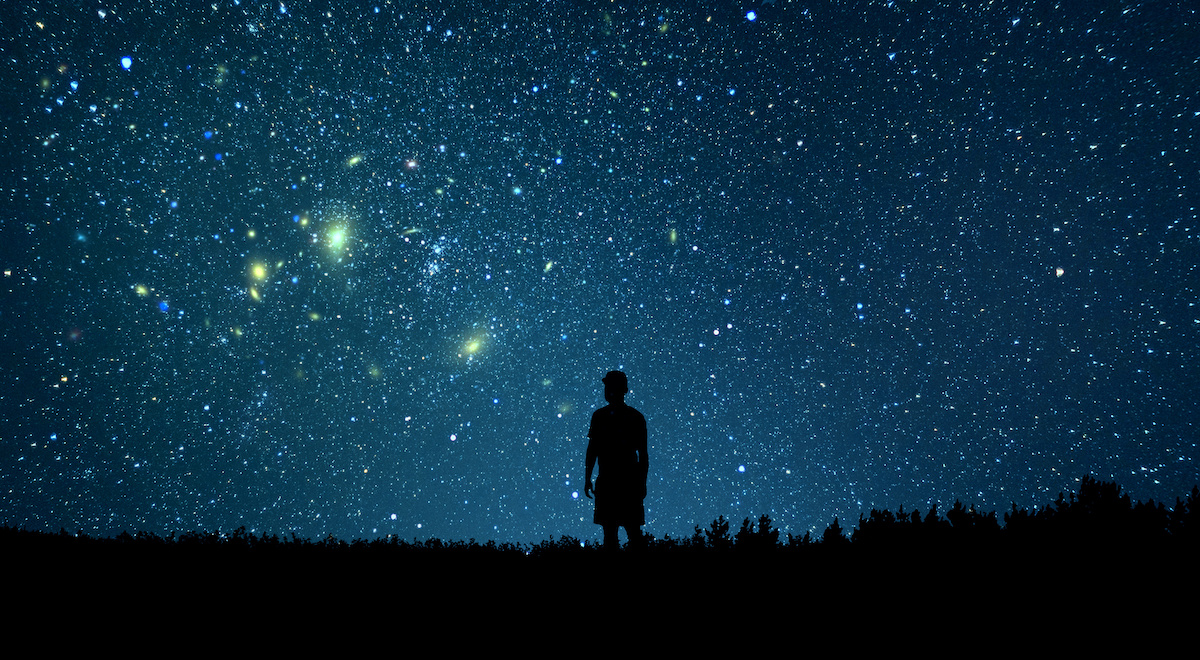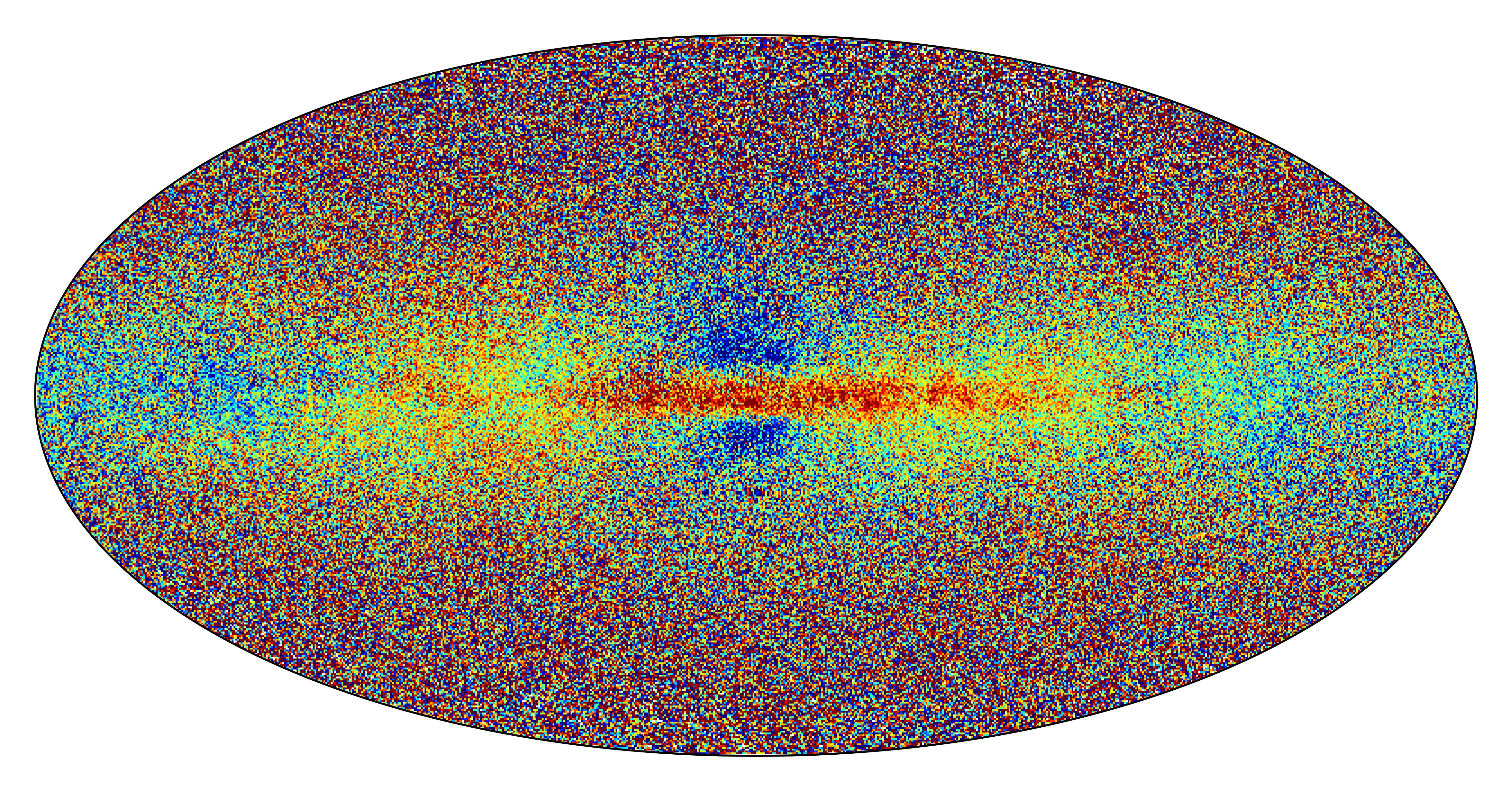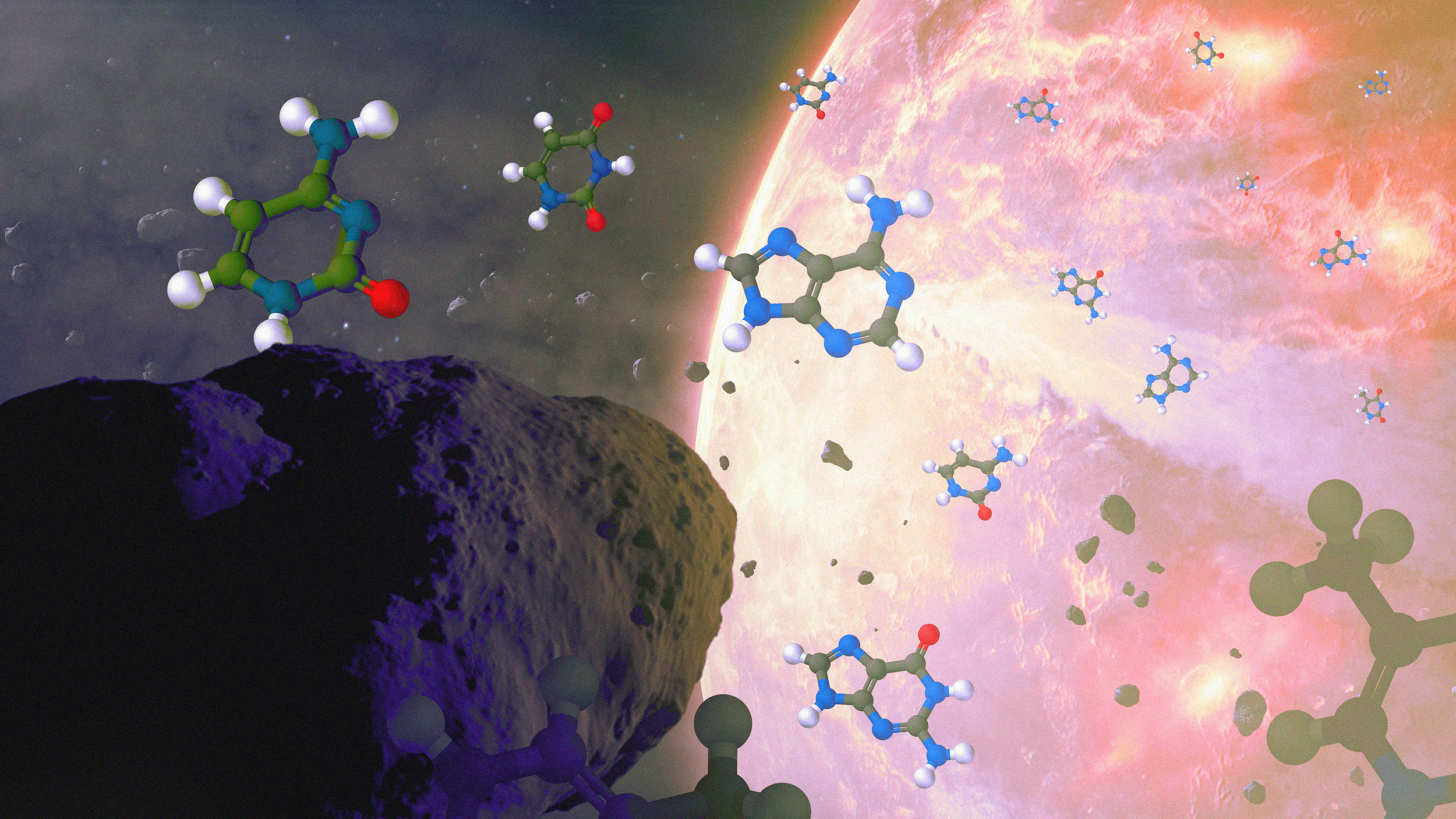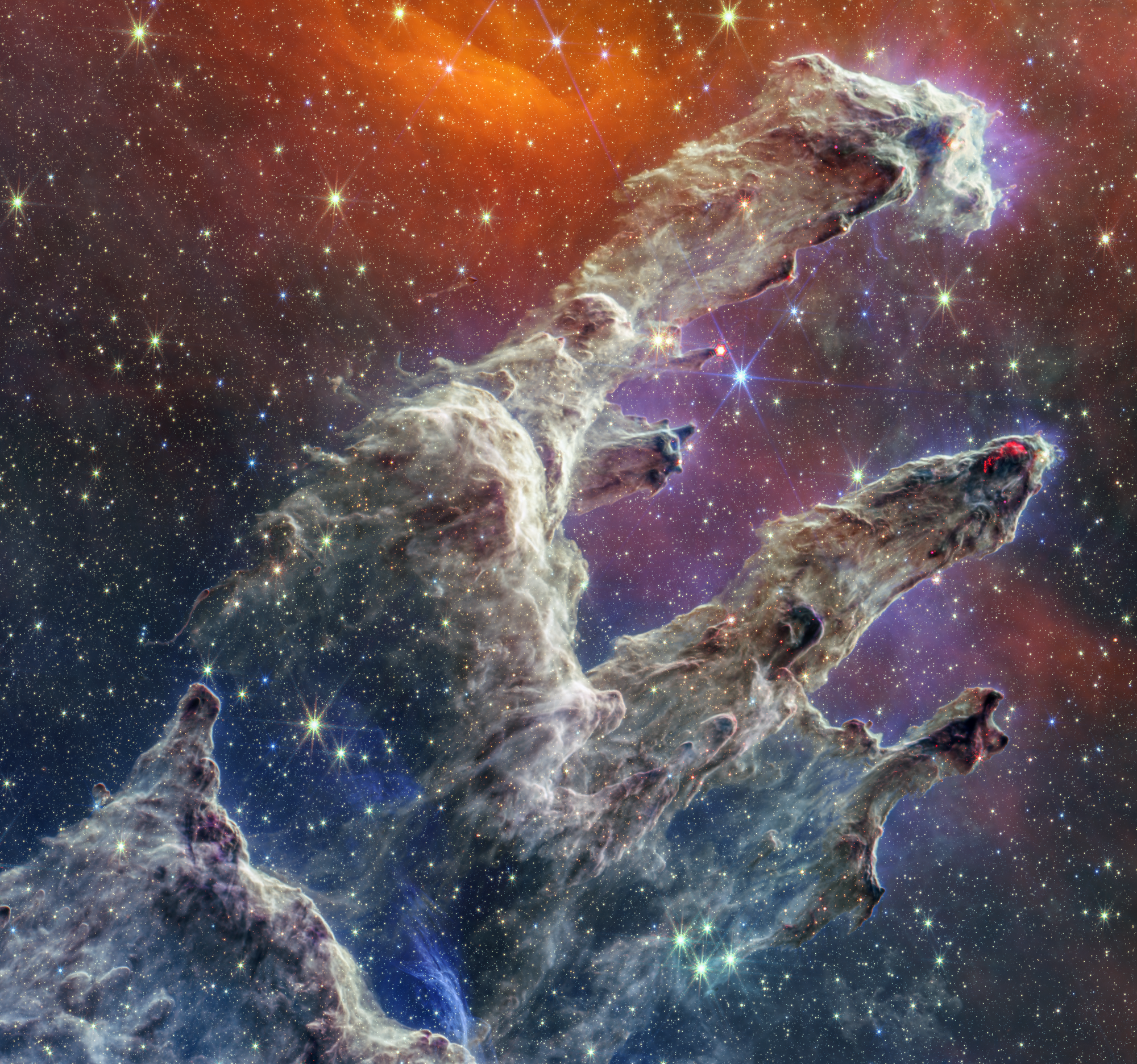On the scale of the Universe, humanity is not even a particle.
This vertically oriented logarithmic map of the Universe spans about 20 orders of magnitude, taking us from planet Earth to the edge of the visible Universe. Each large “sign” on the right-hand scale bar corresponds to an increase in distance scales by a factor of 10.
We are each just a small, small part of our planet: Earth.

The Apollo 8 astronauts were the first people to reach great enough distances from our planet to be able to view the entire Earth at once. Here, the closest (left) and most distant (right) images of Earth are shown as taken with the same Hasselblad camera. Except for the three people on board at this moment, all humanity is confined to the pale blue dot on the right.
It would take nearly as many people as Avogadro to equal the mass of the Earth.

Under ideal dark-sky conditions, the unaided human eye can see up to 6,000 stars at once, and up to 9,000 stars in total if they can see the full sky at once, unblocked by Earth itself. Compared to Earth, at ~6 septillion kilograms, all 8+ billion people, combined, are barely a speck in the total mass of planet Earth.
Earth is just a modest planet orbiting our Sun: one of about 400 billion stars within the Milky Way.

This color-coded map shows the heavy element abundances of more than 6 million stars within the Milky Way. Stars in red, orange and yellow are all rich enough in heavy elements that they should have planets; green and cyan-coded stars should rarely have planets, and blue or purple-coded stars should have absolutely no planets around them. Note that the central plane of the galactic disk, extending into the galactic core, has the potential for habitable rocky planets. This map shows less than 0.01% of the stars within our galaxy.
Our Milky Way is second only to Andromeda within our Local Group of galaxies.

Our Local Group of galaxies is dominated by Andromeda and the Milky Way, but there’s no denying that Andromeda is the largest, the Milky Way is #2, the Triangulum is #3, and the LMC is #4. At only 165,000 light-years away, it is the closest among the top 10+ galaxies to our own, and as such it occupies the largest angular space in the sky of all galaxies outside the Milky Way. There are over 100 galaxies within the Local Group, but Andromeda and the Milky Way contain most of the stars, as well as most of the mass.
Beyond the Local Group, there are many much larger, richer, more massive groups and clusters of galaxies.

This 2014 Hubble composite image of the colliding galaxy cluster, El Gordo, shows the most massive galaxy cluster ever discovered from the first half of our cosmic history. Officially known as ACT-CLJ0102-4915, it is the largest, hottest and most X-ray luminous cluster of galaxies ever discovered in the distant Universe, containing thousands of times the mass of the Local Group.
In all, trillions of galaxies are scattered throughout the observable and expanding Universe.

In a universe dominated by dark energy, there are four regions: one where everything within it is accessible, communicable and observable, one where everything is observable but inaccessible and uncommunicable, one where things will one day be observable, but they are not. today, and one where things will never be observable. The labeled numbers correspond to our consensus cosmology as of 2024, with boundaries of 18 billion light-years, 46 billion light-years, and 61 billion light-years separating the four regions. On scales ~10 billion light years and larger, the Universe is almost perfectly uniform.
Because of dark energy, news of humanity’s greatest exploits will never reach nearly all.

This 1997 artwork shows the planets of the Solar System and the relative trajectories of the first four spacecraft on a course to exit the Solar System. In 1998 Voyager 1 overtook Pioneer 10 and in 2012 it crossed the heliopause and entered interstellar space. Voyager 2 entered interstellar space in 2018 and recently passed the distance of Pioneer 10 in 2023; therefore, we strongly suspect that Pioneer 10 is also in interstellar space, but is no longer operational, so we cannot make the critical measurements needed to make such a determination.
And yet, from another perspective, we are truly extraordinary.

30 protoplanetary discs, or proplyds, as imaged by Hubble in the Orion Nebula. Hubble is an excellent source for identifying these disk signatures in the optical, but has little power to probe the internal features of these disks, even from its location in space. Radio telescopes like ALMA, as well as infrared observatories like the VLT and JWST, are far superior in measuring these details. Planets are mostly born from protoplanetary disks, but different mechanisms can be responsible for different scenarios of planet formation at different distances from the parent star.
We inhabit a rocky world, formed from ancient stellar ash.

This conceptual image shows meteoroids delivering all five nuclear bases found in life processes on ancient Earth. All the nucleobases used in the processes of life, A, C, G, T and U, have now been found in meteorites, along with more than 80 types of amino acids as well: far more than the 22 known to be used in the processes of life. life here on Earth. Similar processes no doubt occurred in star systems throughout most galaxies over the course of cosmic history, bringing the raw ingredients for life to all kinds of new worlds.
For about 4 billion years, continents and oceans have stood on the Earth’s surface.

This aerial view of Grand Prismatic Spring in Yellowstone National Park is one of the most iconic land-based hydrothermal features in the world. The colors are due to the different organisms that live in these extreme conditions and depend on the amount of sunlight reaching different parts of the springs. Hydrothermal vents like this are some of the best candidate sites for life to have first arisen on a young Earth and could be home to abundant life on a variety of exoplanets.
Life appeared early on Earth, surviving and thriving ever since.

This scanning electron microscope image shows several specimens of the cyanobacterium species Prochlorococcus marinus. Each of these organisms is only about half a micron in size, but all together, cyanobacteria are largely responsible for creating Earth’s oxygen: both initially and mostly today. Like all bacteria, their lifespan is much, much shorter than that of a human, and while cyanobacteria are relatively primitive organisms, they “only” date back no earlier than 2.7 billion years ago, as life on Earth goes back more than a billion years, at least, farther than that.
Multicellularity, sexual reproduction, complexity and high levels of differentiation eventually arose.

A fascinating class of organisms known as siphonophores is itself a collection of small animals that work together to form a larger colonial organism. These life forms straddle the boundary between a multicellular organism and a colonial organism. The ability of single life forms to combine features such as multicellularity, complexity, and high levels of differentiation have led to the explosive diversity of life that has existed on Earth for the past 500 million years.
Within us, one organ powers “thought” like no other: the human brain.

This drawing shows a variety of human, monkey, and ape skulls from a variety of extant species. Older apes have smaller cranial capacities and smaller brains than humans, but much stronger jaws, on average. In order for the big brain to develop, the jawbones had to weaken: a loss-of-function adaptation. Modern humans have the highest encephalization coefficient of all known animals, followed by dolphins and then, further back, chimpanzees and some birds.
After 13.8 billion years, civilized humans finally understand our Universe.

This colorful view of the Pillars of Creation uses a large JWST dataset, showing the faint and transient nature of these neutral gas features. Stars form inside such nebulae, but once the gas evaporates, all they can do is burn through their fuel until they die.
Humanity’s imagination, creativity and intelligence remain unmatched.

This museum exhibit shows Deep Blue: the computer that first defeated a world chess champion in a chess match, defeating Garry Kasparov. Since Ruslan Ponomariov defeated Fritz in 2005, no human has beaten a high-performance computer in a classic chess game.
Perhaps, one day, we will appreciate our achievements enough.

Although many claim that the advent of quantum computing will lead to an acceleration of calculations across the board compared to classical computers, this is highly unlikely to be the case. Instead, the best computers will be hybrids: able to exploit the quantum part for applications where the Quantum Advantage can be achieved, but resorting to classical computing techniques for all (ie, most) other applications.
Mostly Mute Monday tells an astronomical story in images, visuals and no more than 200 words.